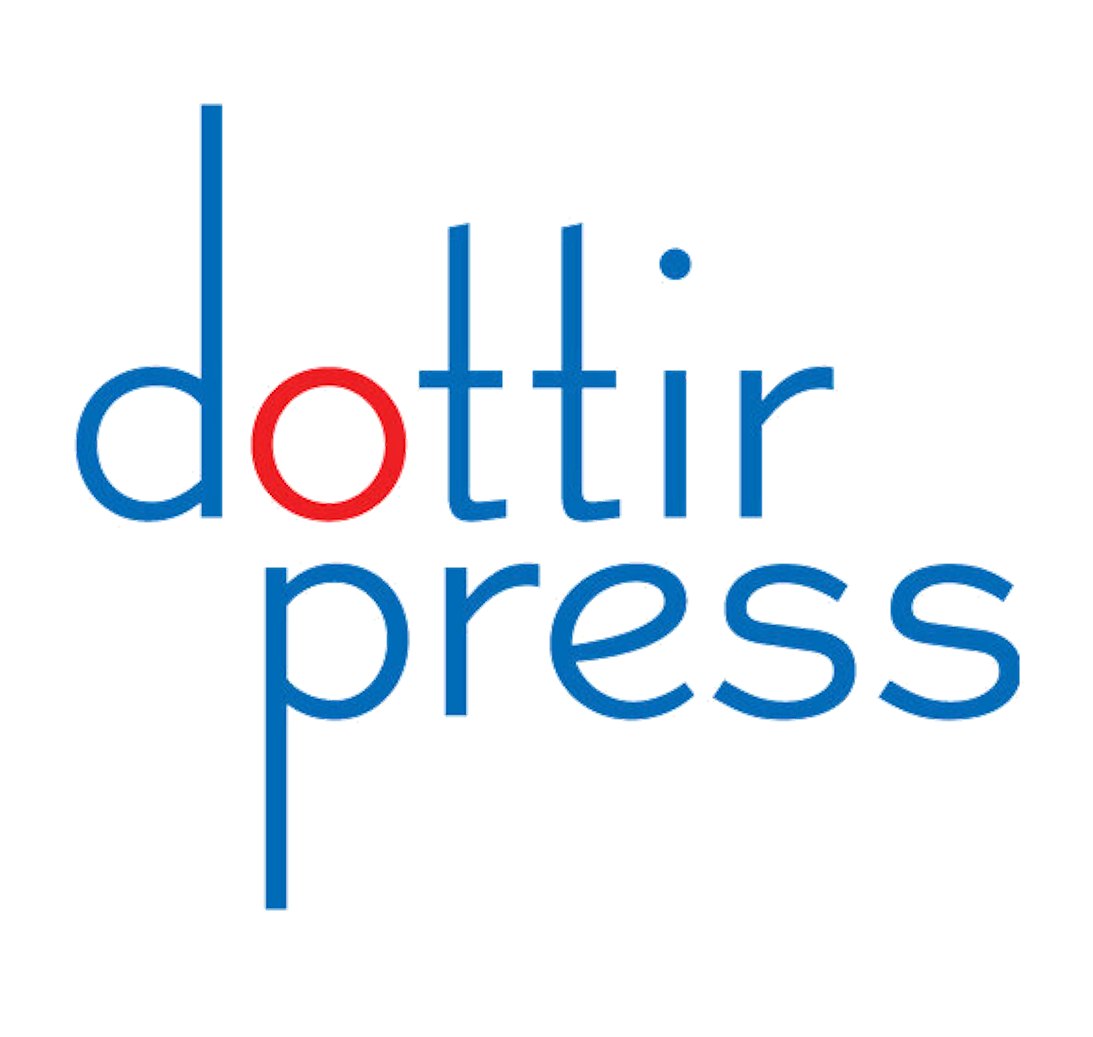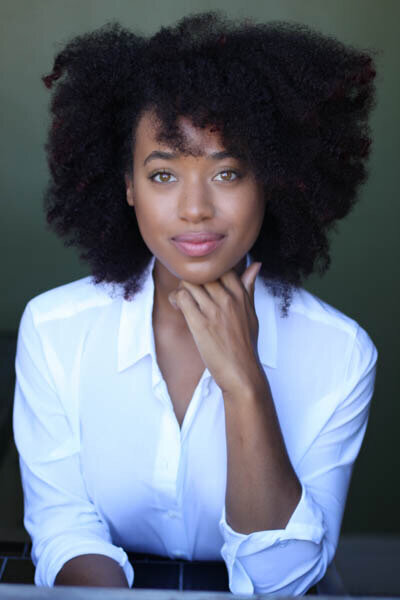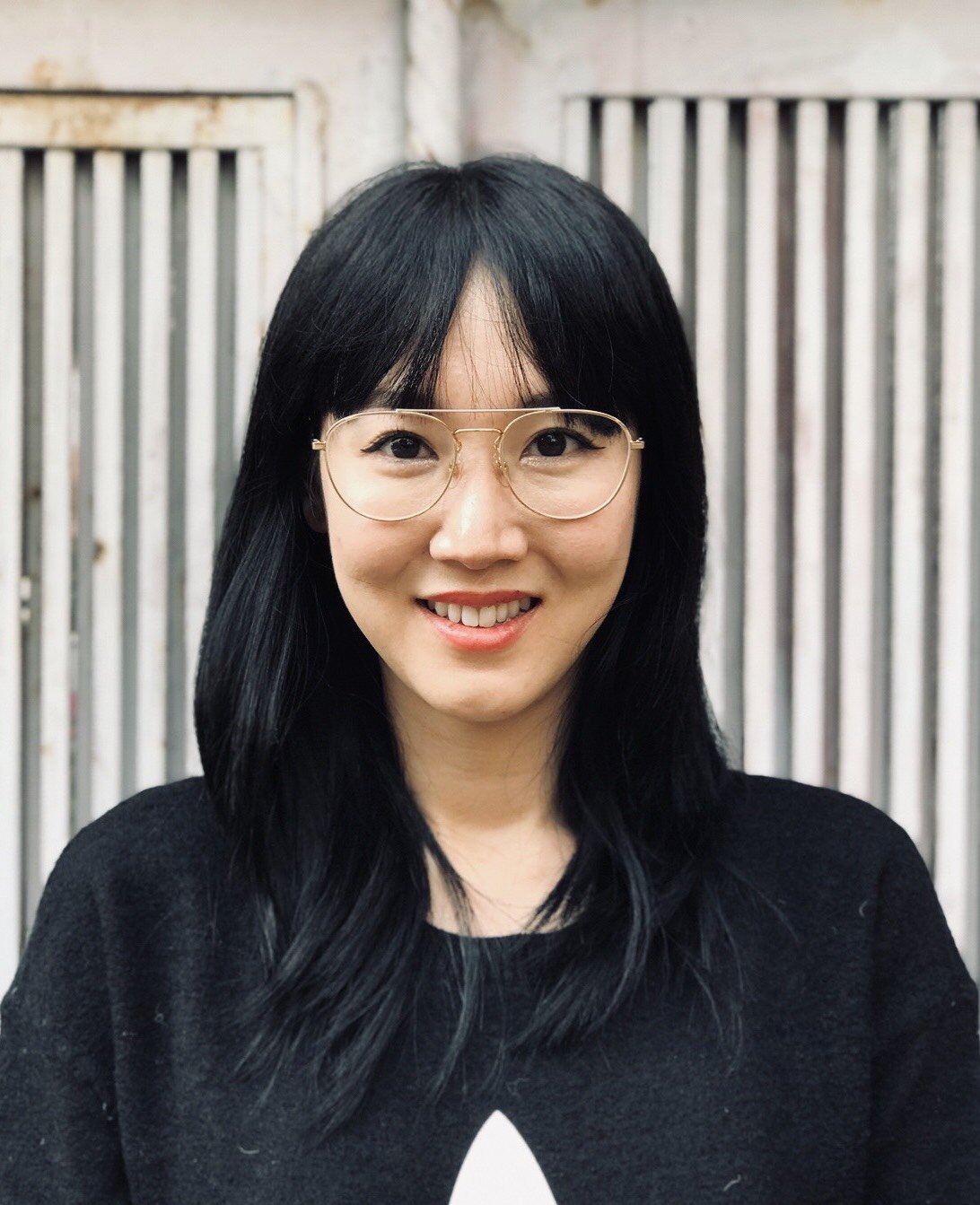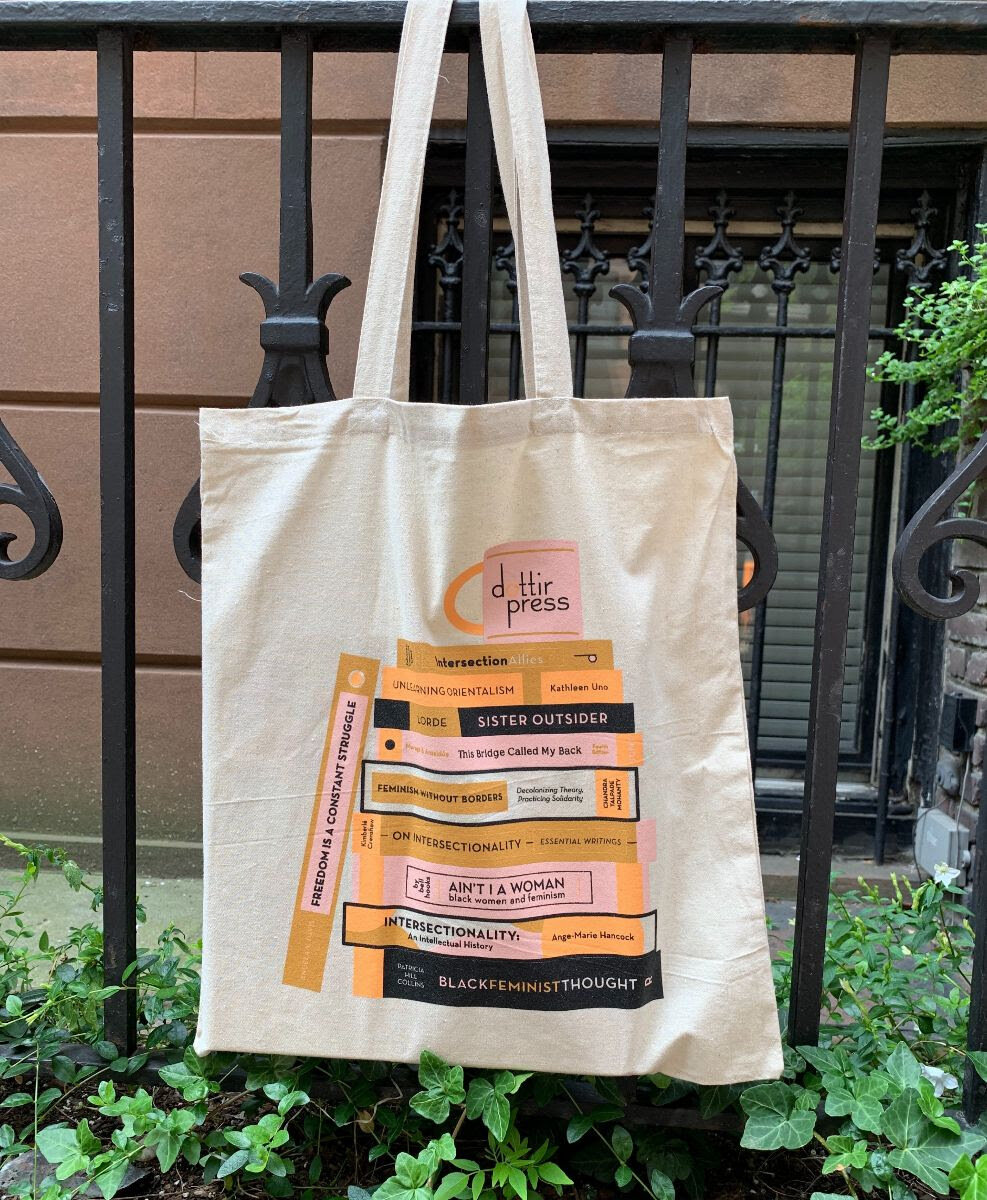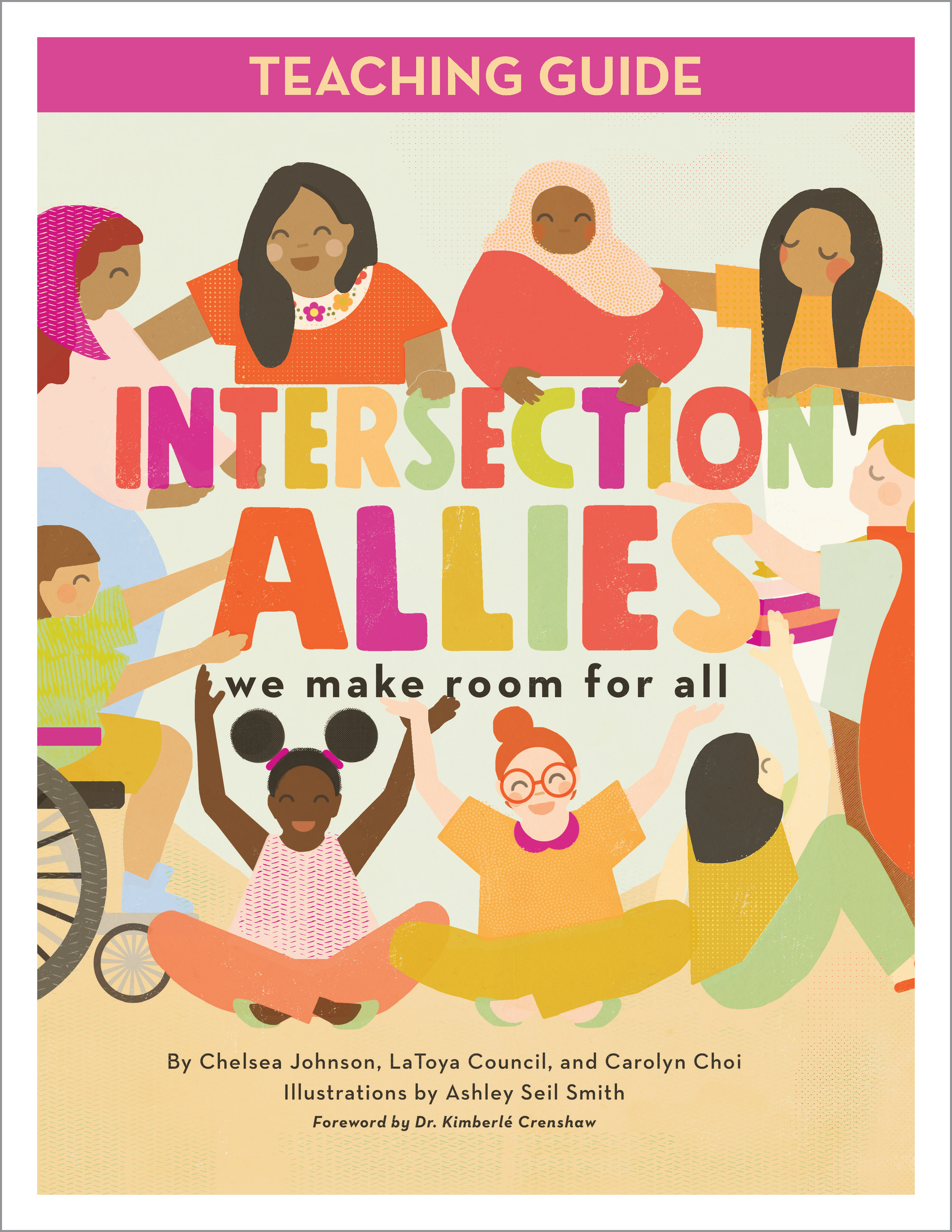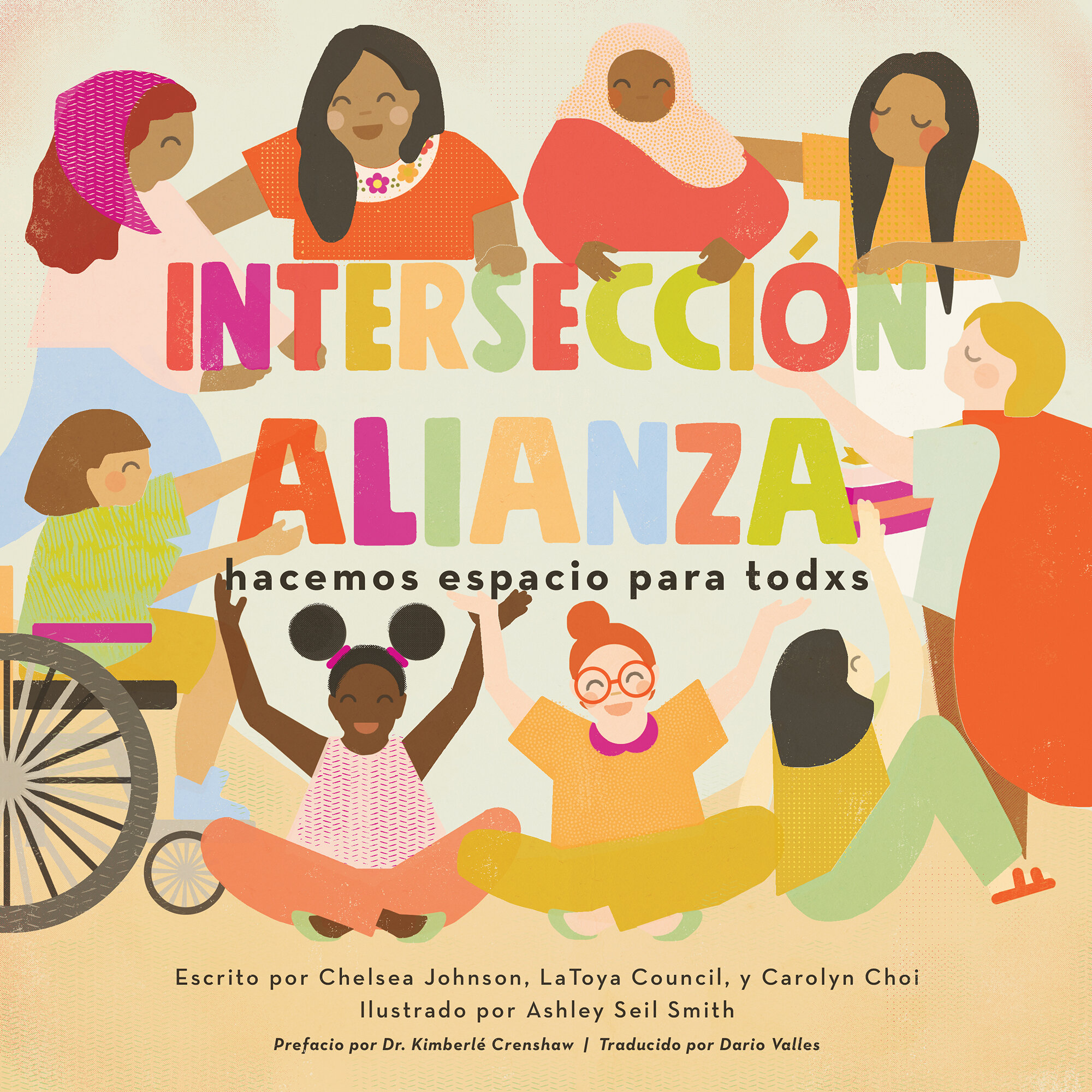Other ordering options
Order at your local indie bookstore with IndieBound
Or, support indie bookstores by buying at BookShop
For bulk orders, contact jb@dottirpress.com
IntersectionAllies:
We Make Room For All
By Chelsea Johnson,
LaToya Council, and Carolyn
Choi. Forward by Kimberlé
Crenshaw.
Illustrated by Ashley Seil Smith
On Sale July 23, 2019
ISBN 9781948340083 (Hardcover)
ISBN 9781948340571 (Softcover)
Media Kit
ePub Version
(for eBook readers)
IntersectionAllies isn’t just a book. It’s a mirror in which kids of all genders, races, sexualities, abilities, cultures, and origins can see their whole selves reflected, respected, and celebrated. In a world increasingly fractured by xenophobia, racism, ableism, homophobia and transphobia, and other forms of injustice, IntersectionAllies teaches the meaning of “community” to kids and parents alike, along with rhyming strategies to support and celebrate each other’s differences.
In poetic stanzas, IntersectionAllies introduces the stories of nine kids from diverse backgrounds. Authors Carolyn Choi, LaToya Council, and Chelsea Johnson use each character’s story to explain how children’s safety concerns are shaped by their intersecting identities, such as class, sexuality, dis/ability, race, religion, and citizenship—what is known in academic and activist circles as “intersectionality.”
IntersectionAllies features introductions by law professor Dr. Kimberlé Crenshaw, who coined the term intersectionality, and Dr. Ange-Marie Hancock Alfaro, author of Intersectionality: An Intellectual History, and artwork by illustrator Ashley Seil Smith.
Back by popular demand—the IntersectionAllies "Inspired by" Tote!
Praise for IntersectionAllies
“The concept of intersectionality, widely known in academia but less so in children’s literature, is here broken down with ease and clarity. —Booklist
“If ever a book belonged in every pediatrician’s office, clinic, daycare, shelter, classroom and home, this is it.” —Literary Hub
“A welcoming resource for conversations about equality and social justice that shows readers how identities are made up of myriad influences.” —Publishers Weekly
“A cheerful, diverse cast of friends describe living the ally life in this progressive picture book...Their unwavering support for one another helps readers understand what intersectionality means and looks like...Highly recommended.” —School Library Journal Starred Review
"Diversity takes center stage in this welcoming introduction to intersectional feminism, a joyous affirmation of how we are all connected." —TIME
About the Authors
As a kid, I was often the only Black girl in my classrooms. Growing up as an “outsider within” my mostly white schools piqued my interest in how race, class, and gender shape social life. I gained the tools to understand my experiences as an undergraduate at Spelman College, a Historically Black College for women in Atlanta, Georgia. It was at Spelman that I became a feminist. After graduating, I began a PhD in sociology at the University of Southern California. My dissertation explored how fashion, politics, and culture relate. I traveled around the world, interviewing women with African roots in South Africa, Brazil, the Netherlands, France, Spain, and the United States about their lives. I now use research to help companies design products with underrepresented groups in mind. When I'm not researching or writing, I enjoy watercolor painting, reading fiction and eating my way through new cities.
I was raised in a single-parent mother-headed home. I would often stare at my mother in awe of her super-shero abilities to manage so many family demands while holding multiple jobs to make ends meet. These memories inspired my vision for a more inclusive world and drove me toward studying sociology at Spelman College, where I first learned about the concept of intersectionality. After graduating from Spelman, I studied the inequalities in love and how race, gender, and class intersect to inform relationship experiences for my Master's at the University of Colorado, Colorado Springs. I am currently working on my dissertation at the University of Southern California, which examines time use and self-care among Black middle-class couples. Intersectionality and the power of love frame how I do allyship and research. When not researching, I enjoy practicing meditation, cooking and hanging with my cat Mimi.
The Los Angeles riots were a defining moment in my childhood that shaped my identity as a second generation Korean American woman. My personal experiences with race, immigration, and gender led me to study sociology and Korean literature at UCLA. After graduating from college, I began community-based organizing at a local non-profit civil rights organization in Los Angeles, which served as my first exposure to intersectional issues facing women in the Immigrant Community. After earning a master's degree from the London School of Economics and Political Science, I entered doctoral study in sociology at the University of Southern California, where I studied the issues of Migrant labor, human trafficking, and international education. My research has taken me across the United States, South Korea, the Philippines, and Australia. In my spare time, I enjoy spreading greater awareness about the Korean arts through performing pansori, a form of traditional folk music.
